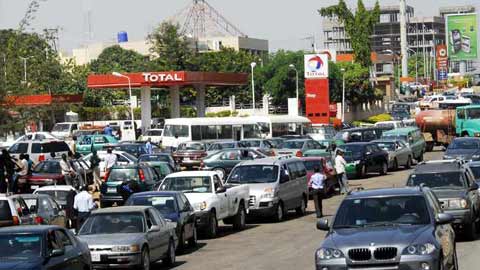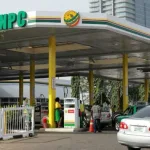Many Nigerian states are in a state of chaos due to a widespread fuel scarcity, leaving commuters stuck, transportation costs increasing, and drivers having to wait in long lines at the few stations that still supply the essential resource.
Transportation networks in Abuja, the capital of Nigeria, and neighbouring states like Nasarawa, Niger, Gombe, Sokoto, and Anambra have been severely affected by the shortage, resulting in significant discomfort for the populace. The problem has been made worse by the closure of filling stations throughout these regions.
Join our WhatsApp ChannelDue to the scarcity, transit costs have increased dramatically, leaving commuters facing outrageous costs for their travels. A trip that used to cost N200 now costs N500, and lengthier journeys have seen fares increase by more than 200%. As a result, many commuters are forced to choose between paying for long walks or trying to afford transportation.
A tricycle operator at Onitsha axis, simply identified as Chukwuemeka Felix, said, “I bought fuel from the black market for as high as N1,350/litre this morning to work, after we discovered that filling stations did not open. Some of my colleagues went to Asaba in Delta State to get the product and that is why transportation fares are high this morning.
There is still much to learn about the underlying cause of this scarcity, which has led to public speculation. Some blame it on a shortage of supplies, while others think there are other factors at play, like a planned effort to raise fuel costs. People’s dissatisfaction and misunderstanding are increased by the lack of clarity.
READ ALSO: Fuel Scarcity Imminent As Tanker Drivers Threaten Nationwide Shutdown
Oil Marketers have made intentions to meet with the Nigerian National Petroleum Company Limited to discuss the crisis, realising how serious the situation is. But real answers are still elusive, which makes the situation worse for regular people caught up in this gasoline scandal.
As they start producing and distributing refined petroleum products, the Dangote Petroleum Refinery and the Port Harcourt Refining Company are expected to relieve some of the pressure. But these projects still have unclear timetables, so citizens will have to deal with the immediate effects of the continuous shortage.
Long lines are building at the few filling stations that are still open in areas like Lagos, Ogun, Gombe, and Sokoto, where the situation is terrible. The huge range of prices per liter—from N580 to as much as N830—puts further strain on already tight household budgets.
The Nigerian National Petroleum Company (NNPC) has been silent when asked to clarify the situation; it has not disclosed the root reasons for the problem or offered any solutions. Nigerians’ sense of uncertainty and frustration is heightened by NNPC’s actions, as the company is the only one that imports petrol into the nation.
Transparency, responsibility, and prompt action are desperately needed to lessen the immediate effects and avert future crises of this kind as the public suffers from the shortage of fuel. Until then, Nigerians continue to live in a state of uncertainty and struggle with the problems brought on by a commodity that is so essential to everyday living being scarce.
Emmanuel Ochayi is a journalist. He is a graduate of the University of Lagos, School of first choice and the nations pride. Emmanuel is keen on exploring writing angles in different areas, including Business, climate change, politics, Education, and others.


















Follow Us